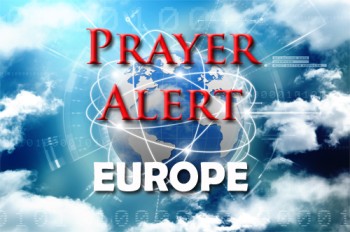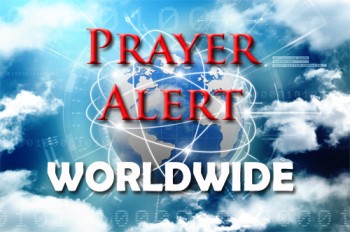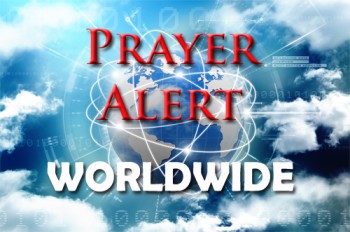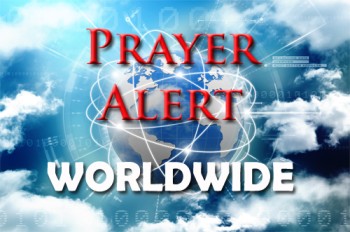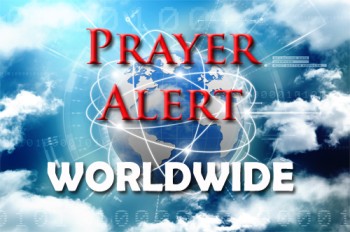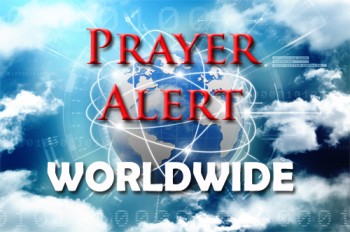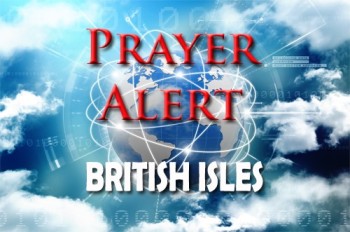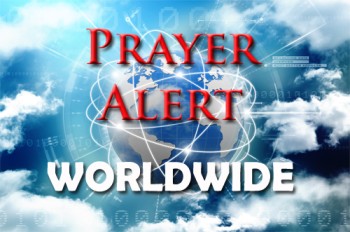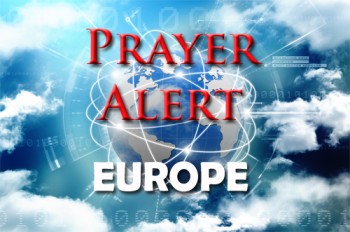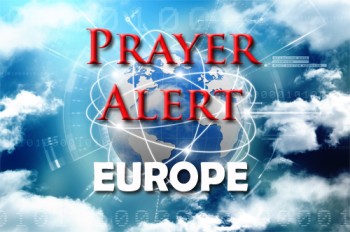Displaying items by tag: sanctions
Ukraine: Trump claims ‘great progress’ in talks with Putin
Donald Trump has described talks on 6 August between his envoy Steve Witkoff and Vladimir Putin as ‘highly productive’, claiming that ‘great progress’ has been made toward ending the Ukraine war. The Kremlin issued a vague statement confirming the exchange of ‘signals’ but did not give further details. The meeting occurred days ahead of Trump’s ceasefire deadline, amid mounting frustration over stalled peace efforts. Volodymyr Zelensky and European leaders were briefed on the talks and reiterated the need to end the war. Despite Trump’s threats of increased sanctions, including raising the tariff on India to 50% for buying Russian oil, Russia has continued its attacks on Ukrainian cities. Three years into the invasion, peace talks have repeatedly failed, and Russia’s preconditions remain unacceptable to Kyiv. Meanwhile, the USA has approved $200 million in military support to Ukraine, with Trump still open to meetings with both Putin and Zelensky. The humanitarian toll of Russian strikes remains devastating and ongoing.
Middle East: Trump seals a deal with Saudi Arabia, lifts sanctions on Syria
Donald Trump began a Middle East tour with major policy and economic announcements, including lifting long-standing US sanctions on Syria - a country rebuilding after civil war and regime change. The move, which follows a request by Saudi Arabia’s de facto ruler, Crown Prince Mohammed bin Salman, signals a dramatic policy shift. Trump also unveiled a $600 billion Saudi investment commitment in the USA and signed a record-breaking $142 billion arms agreement with Riyadh. The visit prioritised economic cooperation over security concerns and featured meetings with top US business leaders and Saudi officials. The deals, on energy, defence, and infrastructure, could eventually total $1 trillion. Trump praised bin Salman but avoided any mention of the 2018 Khashoggi killing. He also reaffirmed a hard stance against Iran, offering conditional diplomacy. His broader goal: to realign regional power structures, bolster US business, and isolate Tehran while pushing for eventual Arab-Israeli cooperation.
Iran: Trump seeks to curb Tehran’s nuclear ambitions
Donald Trump is intensifying his efforts to address Iran’s nuclear ambitions. After withdrawing from the 2015 nuclear deal (JCPOA), he reimposed sanctions, citing Iran's support for militias like Hamas and Hezbollah. Iran has subsequently ignored some of the deal's restrictions and enriched more and more uranium nuclear fuel: analysts fear it could soon be capable of making a nuclear warhead. Trump has reinstated his ‘maximum pressure’ strategy, imposing additional sanctions, but he has now agreed to direct discussions between US and Iranian officials in Oman. However, the USA is demanding full dismantlement of Iran's nuclear programme, a request Tehran will find difficult to accept. Iran’s hardliners view nuclear deterrence as essential, and past negotiations show how challenging these discussions can be. Israel insists on the complete dismantling of Iran’s nuclear capacity, while military action remains a possibility if talks fail.
Cuba: prisoners released despite Trump’s reversing Biden’s decision
Cuba has released 553 prisoners, according to an agreement made in January with Joe Biden’s administration. The deal, mediated by the Vatican, was in return for being removed from the US terrorism blacklist. However, Donald Trump has reversed the decision, reinstating sanctions and temporarily halting the process. The USA had asked for ‘political prisoners’ to be released, but Cuban authorities classified the individuals as having committed diverse crimes. Around 200 of those released had been detained because they took part in the huge anti-government protests in July 2021, though officials claim they were convicted for other reasons. The protests, the largest since the 1959 revolution, stemmed from economic struggles, food shortages, and dissatisfaction with government policies. The release follows pressure from the USA, EU, Catholic Church, and human rights groups to free those jailed.
North Korea: new proposal for enforcing sanctions
The USA, South Korea, and Japan are proposing a new multinational panel outside the UN to enforce sanctions against North Korea. Russia rejected renewing the UN panel which has monitored sanctions for fifteen years, and China abstained. The new panel, with support from allies like Australia and New Zealand, would aim to continue the UN’s work. Though lacking UN endorsement, it could monitor North Korea more effectively, and could also oversee human rights resolutions on North Korea. US ambassador Thomas-Greenfield is discussing options with South Korea and Japan. Noting that Moscow and Beijing have called for easing sanctions to restart diplomacy and ease humanitarian suffering in the impoverished nation, he urged them to reverse course, and stop rewarding North Korea's bad behaviour.
Nicaragua / Guyana border dispute is reignited
Guyana's vice-president, Bharrat Jagdeo, has issued a strong warning that his country will defend itself ‘by all and any means’ amid growing concerns that Venezuela's president Nicolás Maduro may attempt to annex a portion of Guyanese territory, particularly the mineral-rich Essequibo region. The current borders were agreed in 1899 after international arbitration. Guyana, a small nation, has historically relied on diplomacy and international law but is now exploring defence cooperation with allies, including the USA. Its army, with only 4,000 active personnel, would potentially face Venezuela's well-equipped, Russian-backed forces of over 350,000. Jagdeo also expressed concerns that the decision by the USA to ease sanctions on Venezuela may have emboldened Maduro in his threats. The border dispute has intensified since oil was discovered off Guyana's coast in 2015. Many believe that Maduro is seeking to shore up support domestically before the elections in 2024. Washington expects him to ensure a ‘free and fair’ vote as part of the sanction relief deal.
UK sanctions, Chinese response
The UK has imposed new sanctions on several Chinese firms, accusing them of aiding Russia's military actions in Ukraine. China, strongly opposing these measures, has warned of a 'firm response' to any actions that harm its interests. The British sanctions, part of a broader initiative targeting 46 entities across countries like Belarus, Serbia, Turkey, the UAE, and Uzbekistan, aim to disrupt support for Russia's invasion of Ukraine. Three Chinese companies - Asia Pacific Links, Sinno Electronics, and Xinghua - have been targeted for allegedly supplying restricted goods to Russia. Entities in the UAE involved in the Russian oil trade and a Belarusian defence organisation supporting Russia's military efforts have also been sanctioned. Junior foreign minister Anne-Marie Trevelyan emphasised the sanctions' role in weakening Russia's defence capabilities and curtailing illegal supply chains. This move, in collaboration with G7 and international allies, intensifies pressure on Putin and entities aiding Russia. The total count of UK sanctions now includes over 1,600 individuals and 250 entities.
Venezuela / USA: sanctions to be eased
The USA is easing sanctions on Venezuela after the government and opposition agreed on 17 October to have next year's election monitored by international observers. They also promised to give all candidates access to public and private media, and to guarantee their free and safe movement throughout the country. In addition, the two sides have agreed to update the voter registries, to ensure that the millions of Venezuelans who have emigrated can exercise their right to vote. But the opposition and the government still disagree on whether the agreement allows for the exclusion of opposition frontrunner María Corina Machado. US sanctions will be eased on Venezuela's oil, gas and gold sectors, but other sanctions imposed over the suppression of protests and the erosion of democracy remain in place. Secretary of State Antony Blinken also called for the release of ‘all wrongfully detained US nationals and Venezuelan political prisoners’.
EU: anti-corruption sanctions
The EU High Representative and the European Commission are willing to step up in the global fight against kleptocrats. A new anti-corruption sanctions regime would supplement the EU’s existing regime covering worldwide corruption, enabling it quickly and flexibly to complement country-specific anti-corruption policies for targeting dishonest individuals. The proposal would bring the EU into line with other regimes such as the Global Magnitsky Act, passed after investigations into tax fraud by Russian officials, which allows the USA to ban visas and freeze assets of corrupt individuals and human rights abusers worldwide. It is now incumbent upon EU member states to adopt the Commission’s proposal without delay.
Serbia: Wagner mercenaries recruiting for Russia
A Wagner mercenaries Serbian-language video showing Serb volunteers training to fight alongside Russian troops in Ukraine has outraged Serbia's president Vucic. He said, ‘Why do you, Wagner, call Serbians when you know it is against our rules?’ So far, Serbia has prioritised Russian friendship over ambitions to join the EU, but now Belgrade lawyers and anti-war groups have filed criminal complaints against Russia’s ambassador and Serbia's state security and information agency for recruiting Serbians for Wagner. Vucic said, ‘Serbia’s path is towards the West, not towards invading Ukraine. Serbia consistently voted in favour of resolutions at the UN, condemning Russian hostility.’ That stance does not impress MEPs because Serbia refuses to impose sanctions on Russia. MEPs have called for ending Serbia membership negotiations until they agree to sanctions and forego cheap Gazprom gas from Russia.
